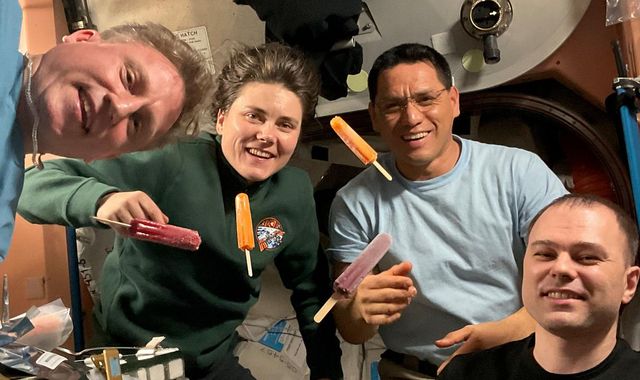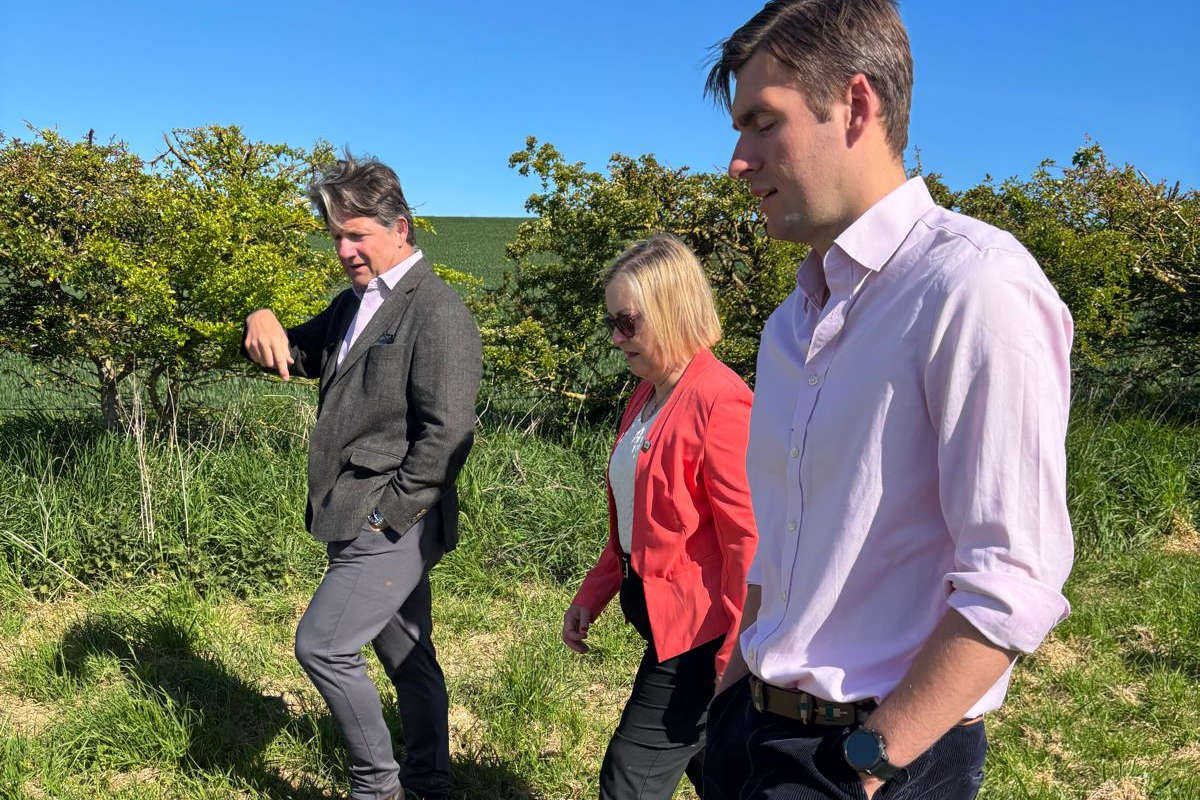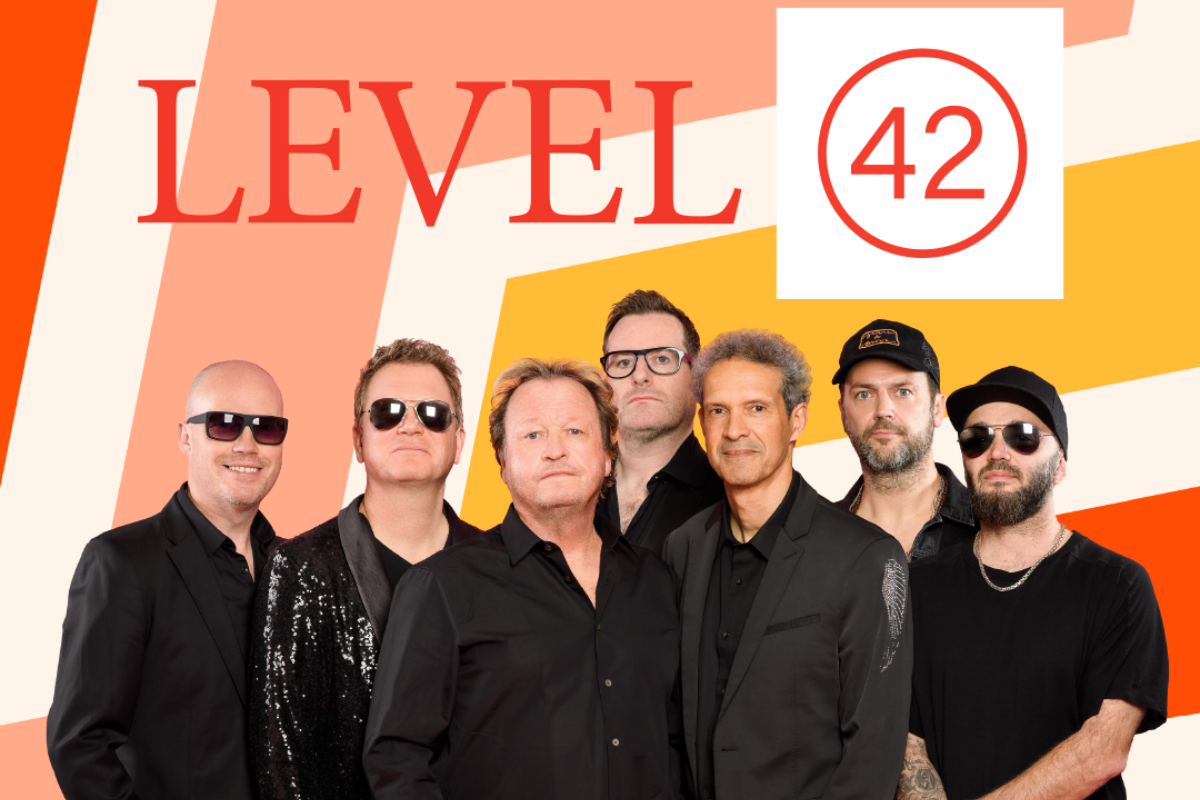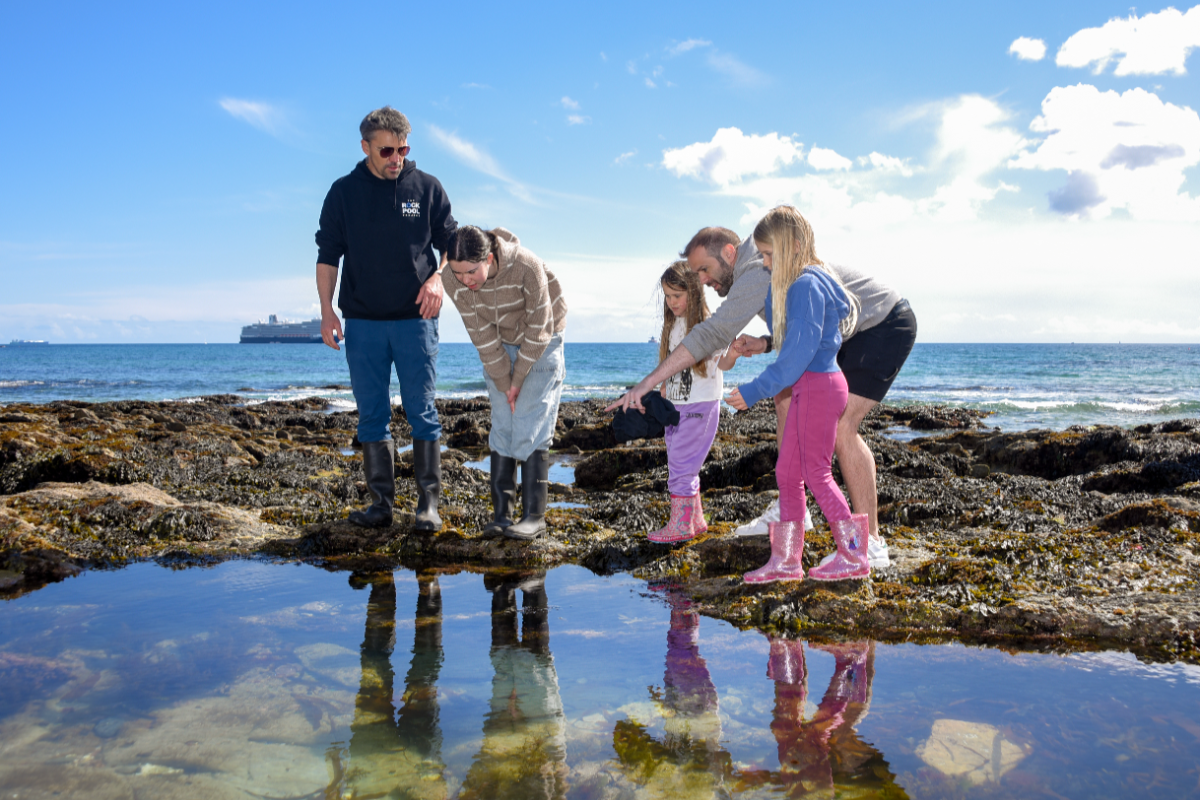
Feeding astronauts is astronomically expensive and as the idea of humans colonising the moon and Mars becomes increasingly realistic, there's a race to find better ways to feed them.
It costs an estimated £20,000 a day to feed just one human in space, and that will only increase the further away we travel.
The bulk of the cost comes from transportation - every extra gram of weight added to a rocket means more fuel burned and less space for money-making "payloads" or cargo.
Fresh food is also unlikely to last a full trip to the International Space Station (ISS), let alone a trip to the moon's south pole or Mars.
Instead, space agencies and scientists around the world are trying to work out how to make food where the astronauts are, instead of transporting it all from Earth.
A team that recently launched a mini-laboratory into orbit to test, for the first time, if lab-grown food could be grown in space told Sky News its experiment "met the mission's objectives".
"This is our first step towards... a future where we can produce food, materials, pharmaceuticals, chemicals and fuels needed for space exploration directly where and when it is needed," said one of the team's scientists, Dr Rodrigo Ledesma-Amaro from Imperial College, London.
Their mission may lay the groundwork for cheaper and more varied food in space, as more of us blast off to the stars.
Lab-grown steaks, Chinese food and more
One option for feeding astronauts is "precision fermenting" food in space, which is what Dr Ledesma-Amaro's team are attempting.
"Precision fermentation is how we make beer, how we make bread, how we make kimchi," he said. It's also how some vegetarian proteins like Quorn are made.
"It's healthy [and] it can give us all the protein and micronutrients we need."
An advantage of using microorganisms to grow food in space, where they'll face extreme conditions like microgravity, high radiation and potentially high temperatures, is their hardiness.
"When we go to extreme environments like the top of the mountain or the bottom of the sea, the only organisms are the microorganisms," said Dr Ledesma-Amaro.
"So they are the ones that can adapt better to this extreme environment."
Read more:
Why do moon's two sides look so different?
Where half-tonne rock may have crashed through atmosphere
Strange things that happened in space
Fermenting microorganisms to create different foods doesn't mean everything will get the slightly sour, fermented taste of pickles or beer.
Instead, scientists can make a fermented version of pretty much anything.
"On Earth, there are companies producing milk proteins and making milk without cows, or maybe taking proteins and making steaks," said Dr Ledesma-Amaro.
Aqeel Shamsul, chief executive of Frontier Space, said the huge variety of food they'll be able to make will also boost astronauts' morale.
"You can get all the base ingredients for Chinese cuisine, for example, and then make the dish that you want," he said.
"It's really important to be able to support the astronauts, but also for morale purposes."
Growing fresh fruit and veggies
Another option for feeding people in space is from traditional horticulture, with a twist.
On the ISS, there is a small, experimental garden tended to by astronauts known as Veggie.
Lettuce, cabbage, kale and flowers have all been grown in the garden, according to NASA, with the vegetables adding variety to the astronauts' diets.
The Veggie garden is roughly the size of a carry-on bag and can hold six plants, which grow in a "pillow" filled with clay compost and fertiliser.
The pillows help distribute water, nutrients and air around the roots.
Without the pillows, the roots could drown or get mouldy, because in space, fluids tend to form bubbles.
Freeze-dried fare
Finally, there's the traditional packaged or freeze-dried fare astronauts currently eat in space.
NASA astronauts, for example, can choose from a menu of freeze-dried food and drink powders as well as "cookies, candy, and other dried goods", according to the US space agency.
Some astronauts even take their own bespoke creations with them, like Britain's Tim Peake, who took tins of luxury food like stewed apples and bacon sandwiches created by Heston Blumenthal to the ISS.
But when humans fly further into space without access to resupply shipments, the vitamins in those packaged foods will break down over time, according to NASA.
That could lead to deficiencies in astronauts' diets, which is why so many people are investigating new ways to make food in space.

(c) Sky News 2025: What astronauts could end up eating in space after experiment 'meets objectives'




 M&S warns of £300m hacking crisis hit - and disruption could last months
M&S warns of £300m hacking crisis hit - and disruption could last months
 HSBC 'being attacked all the time' by online criminals - as boss 'kept awake at night' by cyber threat
HSBC 'being attacked all the time' by online criminals - as boss 'kept awake at night' by cyber threat
 Elon Musk says he will remain Tesla CEO and plans to cut back on political spending
Elon Musk says he will remain Tesla CEO and plans to cut back on political spending
 Risto Bergman: Telecoms worker who created AI-generated images of child sex abuse is sentenced
Risto Bergman: Telecoms worker who created AI-generated images of child sex abuse is sentenced












